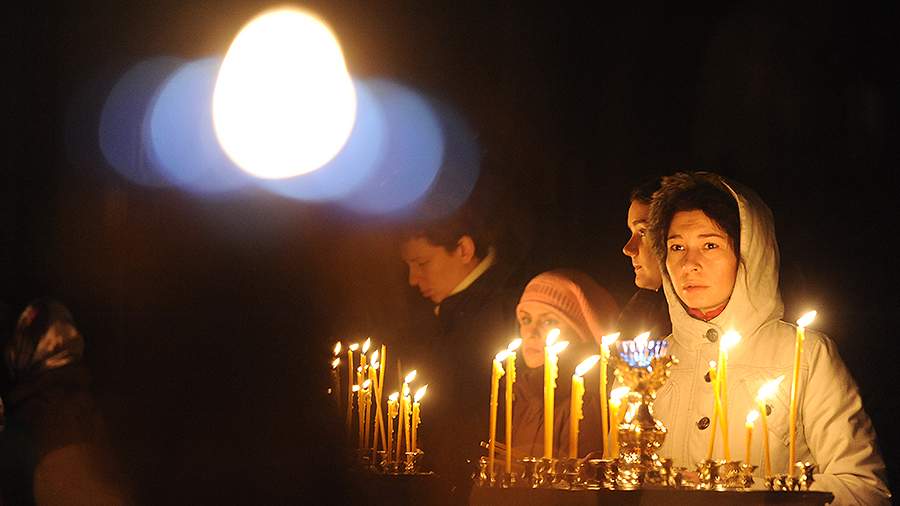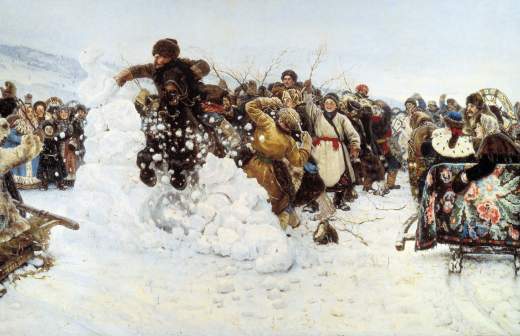March 2 - Forgiveness Sunday: history, traditions, what you can and cannot do

On the last day before Great Lent, Orthodox believers celebrate Forgiveness Sunday, or the week of Syropustnaya. On this day it is customary to ask forgiveness from each other and go to visit for pancakes. "Izvestia" tells how these traditions originated and what is the essence of the holiday.
Forgiveness Sunday 2025 - what date
Forgiveness Sunday has no fixed date. This celebration is held on the eve of Lent, which, in turn, depends on the time of the celebration of Easter. In 2025, the holiday falls on March 2.
History of Forgiveness Sunday
In the liturgical texts there is no mention of Forgiven Sunday. This is the folk name of the holiday, which arose because of the performance in the churches of the rite of forgiveness, at the end of which parishioners and clergy receive a blessing for the beginning of Lent and apologize to each other.
The tradition originated in the first centuries AD in Egypt and Palestine. At that time, a few days before the beginning of Lent, monks left their monasteries and went to the deserts to spend 40 days in solitude and prayer, following the example of Jesus Christ. Many of them never came back, dying of thirst, hunger, attack by wild animals or old age. Therefore, parting, the hermits asked each other for forgiveness and let go of offenses, because this meeting could be the last in their earthly life. Over time, this custom was transformed and became part of the festive worship.
In the church calendar, the last day before the Lent is called the week of Cheesefare week. This is due to the peculiarities of preparation for the long period of fasting.
A week before Lent the church statute prescribes to give up meat. From this moment the main element of the diet for many monks of antiquity became cheese like brynza - Cheese Week began. On the eve of Lent the clergymen made a consecration for all dairy products, as well as eggs and fish. Hence the name Cheese Week (the word "week" is used here in the sense of "Sunday"), the day when "they let go of cheese".
Forgiveness Sunday in 2025 - the essence of the holiday
According to Orthodox tradition, Lent should be approached with a light heart and a pure soul, because it is not just a period of abstinence from a certain type of food, but a serious spiritual feat. Therefore, before its fulfillment it is important to free oneself from the weight of accumulated offenses and repent of one's own mistakes, even if they were made accidentally.
Forgiveness Sunday is a chance for everyone to find the peace of mind necessary for fasting. At the same time, the clergy note that one should forgive and ask for forgiveness sincerely, not formally. Otherwise there will be no benefit from such "repentance", it will rather harm a person, because he was dishonest in his intentions.
What are the traditions on Forgiveness Sunday?
Forgiveness Sunday combines folk and church traditions. On this day in churches there is a solemn liturgy, during which passages from the Gospel of Matthew about the importance of forgiveness are read. Also during the service they recall the story of the creation of the first people and their expulsion from paradise. Hence another name of the feast - Adam's expulsion.
After the liturgy the clergy put on mourning vestments, and in the altar, on the altar and on the throne they change the veils and the veil. Evening services are held with the lights off. They read the rite of forgiveness and bless the beginning of Lent.
In the folk calendar, Forgiveness Sunday coincides with the end of Shrovetide - the most noisy and cheerful day of the holiday week. People sought to stock up on good impressions, because during Lent it was forbidden not only to consume certain products, but also to have fun.
In Russia on this day they organized large-scale festivities with fist fights, fairs, contests and performances of impersonated actors. People went to visit each other, treated neighbors and acquaintances with pancakes. Some of the dishes were distributed to the poor, so that they also felt the spirit of celebration.
While preparing for the feast, women guessed on pancakes. Pouring the first batch of batter on the frying pan, they carefully watched how the pancake would turn out. Flat edges promised unmarried girls a quick wedding and a happy family life, and uneven edges indicated possible quarrels between spouses. A thin pancake heralded an easy year, and a thick one promised difficulties. If the dough was browned, housewives did not worry about the health of the household, and if it remained pale, they prepared for possible illnesses.
The holiday ended with the burning of the Pancake effigy. While it was burning, various food was thrown into the fire, and after scattering the ashes over the fields. In this way people hoped to "feed" the earth in order to get a rich harvest in summer and fall in gratitude. In many regions of Russia this tradition is preserved to this day, although in a slightly modified format.
Young girls on this day made small dolls of cloth and thread, and then burned them in a secluded place. It was believed that the toy would take all the troubles of the creator and disappear with them. In addition, on Forgiveness Sunday it was customary to go to the bathhouse to be cleansed of sins.
How to ask for forgiveness on Forgiveness Sunday?
There is no special formula for expressing repentance on Forgiveness Sunday. Most often believers say "Forgive me", and in response hear "God forgives, and I forgive", but any other form of apology is allowed. The main thing here is not the words spoken, but the sincere desire to earn forgiveness and renounce one's own offenses.
You can apologize for all voluntary or involuntary actions. No one is perfect, sometimes people hurt others without realizing it. Therefore, it is important to learn not to hold on to the past and the negative emotions associated with it. Far from always forgiveness means that the relationship with a person will improve or return to its former state. However, it can be a serious step towards mutual understanding and finding a mental balance.
Forgiveness Sunday in 2025 - what you can and cannot do
On Forgiveness Sunday, believers can still afford fast food: eggs, fish and dairy products. The ban on these products will begin to take effect only on the first day of Lent - March 18.
There is an opinion that on this holiday it is impossible to do housework and heavy physical labor. However, the Church does not impose such a ban. For believers there is only a recommendation - household chores should not overshadow the religious significance of the holiday, distracting from prayer and visiting temples.
In addition, on Forgiveness Sunday should not quarrel with people or fight, because it is a day of universal repentance and forgiveness.
Earlier "Izvestia" told about folk omens associated with the Forgiveness Sunday.
Переведено сервисом «Яндекс Переводчик»

